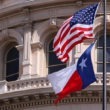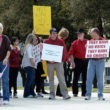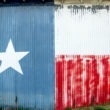IN THE FALL OF 1994, the Nation‘s David Corn wrote an account of George W. Bush muscling the Argentine minister of public works on behalf of the Houston-based energy pipeline giant Enron. Corn reported that Bush had called the Argentine official in 1988 to introduce himself as the son of the current vice president who would soon be president of the United States. He also advised him that it would serve the interests of Argentine-U.S relations if Enron were awarded the contract for a $300 million gas-transmission line that the Argentine government was funding. At that moment, Enron represented the gold standard in American business. Its CEO, Ken Lay, was regarded as one of the boldest innovators in the country, and Enron’s stock was a perennial favorite of Wall Street analysts. Yet the Houston company was carpetbagging in Buenos Aires, where it had recently opened but barely staffed an office. The one-page bid that Enron submitted to Argentina’s government, compared with what had been submitted by competitors years into the process of preparing detailed proposals, was “an outline at best,” according to Public Works Minister Rodolfo Terragno.
The timing of Corn’s fall 1994 story was as critical as the timing of George W. Bush’s 1988 call to Terragno. In 1994 Bush was making his second run for public office and was very close to upsetting Texas’s popular Democratic governor, Ann Richards. (He had failed in a poorly run campaign for the U.S. House in West Texas in 1978, in which Rove was marginally involved.) Because of the Nation‘s mailing schedule, Corn’s story would have arrived too late to inform voters in Texas about the Argentina story. I was editing the Texas Observer, and when Corn offered us his story, which also ran in the Nation, we agreed to use it. Several Texas media outlets had taken a run at the story, but all had been beaten back and intimidated by a Bush campaign directed by Karl Rove. A week before the election, the story appeared on the cover of the Observer under the headline “Don’t Cry for Me, Argentina.”
THE ROVE I KNOW—The morning after the issue was mailed to subscribers, Karl Rove called, bellowing into the phone. My squalid conduct on the eve of an election, he declared, had threatened the candidacy of an honorable man and compromised the “integrity of the Observer.”
“Ronnie Dugger had integrity,” Rove said of the Observer‘s founding editor. He told me that I had none and had destroyed the reputation of one of the best political journals on the left. The Argentina story was without foundation, he said, and the Bush campaign had already provided David Corn with documents that conclusively proved it untrue. It was “trash . . . the fantasy of some guy in Argentina.” Yet all that the campaign had given Corn was a fax that contained a written denial—and additionally, as proof, a photocopy of George Bush’s daily agenda, highlighting his travels on the day he was reported to have called the Argentine cabinet member.
BUSH THE ELDER PLUMPS FOR ENRON—In 2000, with Texas governor George W. Bush running for president, I returned to the story for Mother Jones, collaborating with an Argentine wire service editor. What we found in Buenos Aires added a great deal to what David Corn had reported six years earlier. Rodolfo Terragno—poised to return to a cabinet position with the election of another reform government—stood by what he’d told Corn in 1994. Horacio Verbitsky, Argentina’s pre-eminent investigative reporter, had continued to follow the story and confirmed what Corn had reported, and far more. Soon after the elder Bush was sworn in as president in 1989, Terrance Todman, Bush’s ambassador in Buenos Aires, began bullying the Argentine government on behalf of Enron. Embassies are expected to promote business interests of the countries they represent. But Poppy Bush’s man in Buenos Aires was so over the top that he offended the sensibilities of a citizenry inured to political scandals by the rule of generals as corrupt as they were oppressive. Enron, for example, was awarded a tax-exemption only available to certain domestic industries. It was all scrupulously documented by Verbitsky, who referred me to his book Robo para la corona (I Steal for the Crown) for further details.
While I was reworking the Enron story in 2000 with my Argentine colleague, she called to inform me that an airplane carrying the senior Bush had arrived almost unnoticed in Buenos Aires. Aware that a visit by the former president was reported nowhere in the press, she assigned her reporters to the story. While in Buenos Aires, Bush paid a visit to his friend, the spectacularly corrupt President Carlos Menem, and then joined a group of bankers for dinner. Several days later, international banking fugitive Raúl Moneta surrendered to Argentine authorities. Moneta had been in hiding for more than a year. While in seclusion he had become the business partner of Bush family crony Tom Hicks.
In one of the queerest deals in the history of international business, the Dallas-based Hicks, Muse, Tate & Frust took control of an Argentine media conglomerate by buying $725 million worth of its shares from Moneta while he was running from the law. The Dallas Morning News reported that Moneta called Hicks to discuss board matters, while Hicks had no idea of the undisclosed location from which his South American business partner was calling. Was a former president of the United States in Argentina running an errand for a fellow Texan who was also one of his son’s biggest political patrons?
I called the senior Bush’s office and asked if he was in Argentina and if so, for what purpose. I was told that he was traveling on personal business, which was none of my business. When I persisted, I was told the former president was in Argentina fishing. Argentina’s La Nación found more forthright sources, who revealed that Bush was in Argentina to explore how the new government would deal with CEI, the communications company acquired by Hicks.
Later in 2000, I would hear from Karl Rove again. At a conference in Colorado, I was on a panel discussing Rove and the George W. Bush presidential candidacy. The mother of a Bush campaign staffer was in the audience, and I began my talk by saying I hoped that Karl’s sister was not present—an attempt at humor. When I returned to my office in Austin, waiting on my desk was a note:
Dear Lou,
Not my sister, but an aunt, armed with a tape recorder.
Karl
It was both funny and chilling. Molly Ivins and I had just written a short (and critical) political biography of then-governor George W. Bush. The suggestion, even in the form of a humorous personal note, that my public comments were being taped was bothersome.
Rove’s mugging of media he considered unfriendly was standard operating procedure. In January 2005, for example, he called and screamed at Texas Monthly editor Evan Smith regarding a story that staff writer Pamela Colloff had written about the Swift Boat Veterans’ assault on John Kerry, according to a source at the magazine. By this time, Bush had been re-elected president. Republicans controlled both Houses of Congress. Yet Rove was trying to intimidate the editor of a magazine in one of the few states where the president’s approval ratings never fall below 50 percent. Winning, Rove often said, was a process and not an event. Bullying the press was part of that process.
M.O. OF “THE ARCHITECT”—There are several reasons for revisiting these stories. One is to make the point that there is a thuggishness about Rove that is usually lost in press accounts of what a bon vivant and jokester he is. All political operatives cover for their bosses. But few do it as federal employees, and far fewer as senior White House officials. (Bill Clinton was smart enough to keep James Carville and Dick Morris out of the White House and off the federal payroll.) When Rove calls to bully an editor or reporter, not so much to complain about a story that ran as to influence future coverage, he does it with the authority of the president of the United States.
It’s also worthwhile to rehearse yet again the argument that the extended Bush family sometimes looks like a white collar crime cartel—as was evident in Argentina and in other venues the family has visited for business. It’s impossible to read Kevin Phillips’s American Dynasty or Seymour Hersh’s 1993 New Yorker account of the Bush fils Neil, Jeb and Marvin flying to Kuwait with Dad after the first Gulf War, each son marketing his own product line to the Kuwaitis, without wondering if the Bush family is a corrupt business enterprise unto itself. (James Baker III and General Thomas Kelly were also on the Kuwaiti business junket, representing Enron, while the senior Bush was receiving the national Medal of Honor.)
Taken together, David Corn’s 1994 Argentina piece, followed by Karl Rove’s virulent response to the documented truth, and preceded by Sy Hersh’s detailed account of the Bush family on the make in Kuwait augured an administration that would establish unprecedented standards for corruption and an elaborate and often brutish defense of the right to use public power for private gain. That Wall Street Journal editor Paul Gigot would end his August 13 column, in which Rove announced his retirement, with a question about a 2012 presidential campaign by Jeb Bush suggests that the Bush saga is still being played out. Chronicles of the Bush family’s business dealings such as Robert Bryce’sCronies and Pipe Dreams and Phillips’s American Dynasty—have at least five more years of shelf life.
HE’LL ALWAYS HAVE TEXAS—In the end, Rove failed to establish the permanent majority he promised the Republican Party, the sort of realignment that political strategist (and Rove hero) Mark Hanna engineered with the election of William McKinley in 1896. The failure was related to Rove’s attempt to accommodate the evangelical extremists who have become the Republican Party’s base. Despite George W. Bush’s abiding faith, the Bushes are, primarily, the First Family of American Business.
Rove recognized the importance of cultivating evangelicals when the Christian Right took over the machinery of the Texas Republican Party, just as George W. Bush was beginning his first race for governor in 1994. But harnessing the Christians was an electoral strategy, not a governing strategy. The central conceit was explained by an aide to former House majority leader Tom DeLay, another corrupt political figure who sometimes failed to distinguish between God and Gelt. “Simply put, we want to bring out the wackos,” DeLay aide Mike Scanlon wrote in an e-mail obtained by the Senate Indian Affairs Committee three years ago. “The wackos get their information from the Christian Right, Christian radio, the internet, and telephone trees.” The idea was to bring out the wackos every two years, then work to placate them between elections.
Even George W. Bush sometimes referred to evangelicals as “the wackos,” according to Dallas Morning News reporter Wayne Slater and Austin journalist Jim Moore, who have written two books about Rove. The notion that you could bring Christian extremists to the polls and then send them home for two years was the flaw in Rove’s road map to the political realignment that would create a permanent majority. Getting the “wackos” to vote proved to be easier than accommodating them once in power. Again and again the Bush administration foundered, and its support flagged, as it attempted to accommodate Christian extremists whom Rove was struggling to keep in harness with the economic conservatives who for decades had dominated the Republican Party.
In 2005, the president’s dramatic midnight flight from Texas to Washington to sign an emergency bill transferring jurisdiction over the dying, vegetative Terri Schiavo from the state of Florida to a federal district court offended a majority of Americans, who were ill at ease with a president intervening in a private matter of life and death. Bush’s veto of funding for stem cell research, and the rigid guidelines he imposed on such research, eroded public support for the president.
And one of Bush’s greatest defeats was handed to him by the leaders of the Christian Right, whom Rove had worked so hard to bring into the Republican Party. The evangelical community had made it clear early on that they would oppose any attempt to appoint Alberto Gonzales to the Supreme Court. Gonzales had written an opinion while he served on the Texas supreme court, affirming the rights of minors seeking abortions. Among Christian extremists he became known as “the brown Souter,” a reference to Supreme Court Justice David Souter, who was appointed by President George H. W. Bush and whom the Christian Right refers to as a “stealth moderate.”
Unable to place Gonzales on the Supreme Court, George W. Bush nominated his longtime friend and White House counsel Harriet Miers for the seat vacated by Justice Sandra Day O’Connor. The Miers nomination engendered the fury of the evangelical community. The Rev. Jerry Fallwell had to be assuaged, after telling his followers that Miers (a Sunday school teacher at her evangelical church in Dallas) would support “abortion on demand.” Rove found himself negotiating with Focus on the Family’s James Dobson, the Colorado-based director of a Christian Right radio and publishing company, and the Rev. Pat Robertson, whose comments are so bizarre they often make him a pariah in his own community.
As it would turn out, Harriet Miers was not sufficiently born again to satisfy the evangelicals. The fight to save her nomination, if not her soul, began to look like a replay of the 1994 Republican State Convention in Fort Worth, where Rove came to terms with the Christian Right and where women running for party leadership positions were introduced as “God-fearing” and “Bible-reading” “Christian servants.” It also recalled a statement Texas Lieutenant Governor Bob Bullock once made to George W. Bush: “If you’re going to fuck me, you’ve got to kiss me first.”
Karl Rove kissed the leaders of the Christian Right—and in the end got fucked. The evangelicals’ defeat of Bush loyalist Miers was a watershed moment for the White House and the national Republican Party. The union of social conservatives and evangelical extremists endures in Texas, where there is both a balance and an overlap between the two constituencies, which hold very different views of government. But Washington ain’t Austin, and the country is far more pluralistic than Texas when it comes to religion.
In saying good-bye to Washington Rove will be returning to a state in which there is a Republican hegemony no one could have envisioned when he first began compiling mailing and donor lists twenty-five years ago—when all but one statewide office was held by a Democrat. That shift in party power is his legacy. Republicans, many of them former Rove clients, today hold all twenty-two state offices. And both houses of the Texas legislature are dominated by Republican majorities. The state, like most of the South, was shifting from Democratic to Republican dominance when the senior Bush initially brought Karl Rove to Houston in 1977. Yet Rove accelerated that shift in a way that neither Republicans nor Democrats in Texas believed was possible.
It’s a hegemony he came close to replicating on the national stage—but ultimately he failed in the effort.






Hi,I read your blog named “Where Karl Rove Went Wrong | Washington Spectator” on a regular basis.Your humoristic style is awesome, keep up the good work! And you can look our website about free proxy.